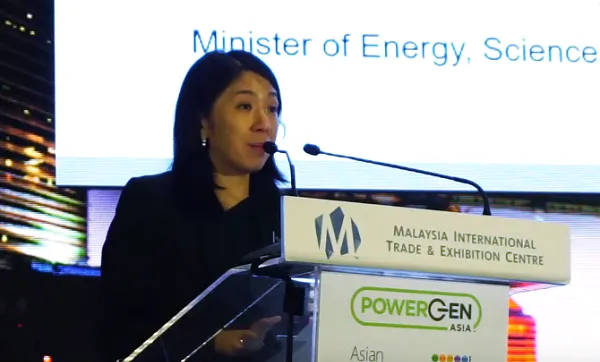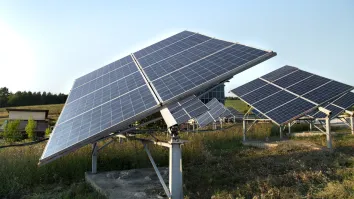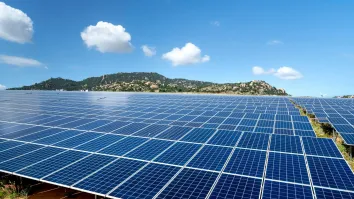
Malaysia rolls out investment reforms as renewables approach grid parity
Prices during its auction for 365MW of solar projects went below the benchmark for gas power.
Malaysia had launched auctions for 365MW of large-scale solar power capacity in 2019 through LSS3 with a reference price of 32 cents/kWh based on previous tenders, but the market defied expectations when prices went as low as 17.77 cents/kWh - lower than the price for gas-based power in the country.
In line with this, grid parity for solar power can be seen in the foreseeable future, said Malaysian energy minister Yeo Bee Yin. In her speech at the opening of POWER-GEN Asia 2019, Yeo identified grid parity for renewables as one of the four drivers of the country's energy transition, along with market disruption, demand management and prosumers, as well as international power trading.
Riding on the renewables parity trend, Yeo said the government has to incentivise renewable installations and deployment through financing. For that, Malaysia will need $7.83b (RM33b) of investment.
Also read: Non-hydro renewables in Vietnam to grow 22.4% annually: report
Malaysia also has 21 action items to reward private financing in renewable energy, Yeo said. The government also plans to continue tax allowances and exemptions for investors in the country's renewable energy projects. The country is also looking to enhance green energy trading through bilateral agreements with the private sector.
The enhancement of its domestic power sector also serves as an opportunity to enter the international market for power trading, said Yeo. Malaysia is eyeing increased collaboration with Southeast Asian nations.
Previously, Malaysia inked a multilateral agreement with Laos and Thailand in which the former will be the buyer of electricity whilst the latter will provide transmission facilities. "This is the first but not the last for the ASEAN power grid," she said.
However, in order to execute this, Yeo noted that the regional regulatory framework must be similar across countries. Transparency must also be a priority in these reforms not only to satisfy investors but also to ensure certainty in power planning.
"This is a challenging time, but this is also an exciting time," the minister said.
Photo from MESTECC



















 Advertise
Advertise







